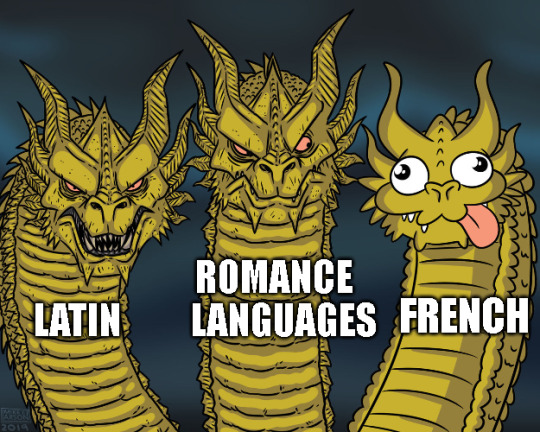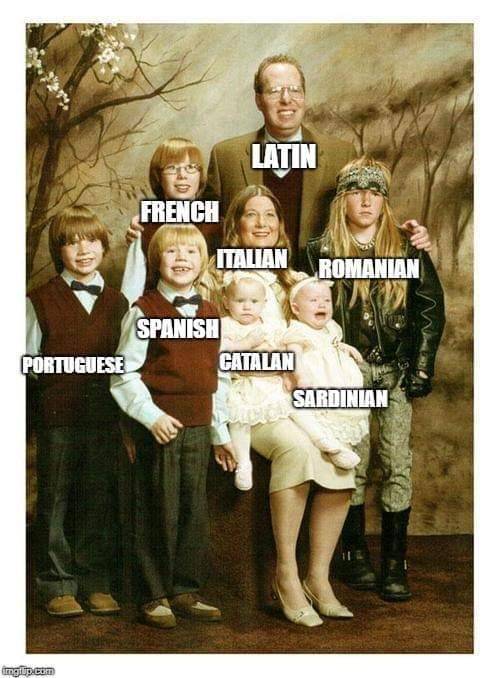Text
NO
But also...
Yes x'D
40K notes
·
View notes
Text
every day i wake up and need to complete time sensitive work. unfortunate because I would simply prefer not to
533 notes
·
View notes
Text
me every time i take a sip of my cappuccino: do they know it's called cappuccino because the color is similar to the sackcloth worn by capuchin friars (cappuccini). do they know capuchin friars got their name from the hood (cappuccio) they wear. do they know cappuccino is a double diminutive as it comes from capo ('robe') + uccio = cappuccio ('hood' but literally 'little robe') + ino = cappuccino ('tiny hood' but literally 'tiny little robe'). do they know
56K notes
·
View notes
Text
Kinda crazy that at least half of langblr is learning their languages through their second and third languages instead of their native ones. The skills and talent you have to have to be able to self-study a foreign language in yet another foreign language is remarkable (especially if you need to learn specialized C1/C2 level shit) and I am honestly very jealous. I know it’s “normal” to a lot of you, but as someone who has never ever had to detour by using another language outside of my home one, I still think that’s very sexy of you guys that you can just do that.
616 notes
·
View notes
Conversation
Romance Languages
French: wine mom
Spanish: beer dad
Portuguese: vodka aunt
Romanian: weed cousin
Italian: whiskey grandpa
926 notes
·
View notes
Conversation
Cat in romance languages
French: chat
Italian: gatto
Spanish: gato
Portugese: gato
Romanian: pisică.
327 notes
·
View notes
Text
Italian is strange and bizarre and fascinating, and doesn’t get enough credit for that.
If you have an adjective, this usually goes after the noun it describes, because new information is added at the end of the sentence.
But a handful of adjectives, that is those that describe beauty, size, age and goodness, can go either before or after the noun, and according to their position they mean something different (e.g. un vecchio amico “a long-time friend” vs. un amico vecchio “a friend that is old”), because these adjectives are said to have a descriptive or restrictive meaning.
But also, if you have two adjectives describing a single noun, they can either both follow what they’re modifying, or one of them goes before and one after, as in una piccola casa gialla “a small yellow house”.
Isn’t Italian just delightful?
330 notes
·
View notes
Text
Romance language culture
is reading a book in a language you don’t technically speak but have no difficulty understanding.
525 notes
·
View notes
Text
Weekdays in Romance languages:
Catalan: dilluns, dimarts, dimecres, dijous, divendres
French: lundi, mardi, mercredi, jeudi, vendredi
Italian: lunedì, martedì, mercoledì, giovedì, venerdì
Romanian: luni, marţi, miercuri, joi, vineri
Spanish: lunes, martes, miércoles, jueves, viernes
Portuguese: SEGUNDA-FEIRA, TERÇA-FEIRA, QUARTA-FEIRA, QUINTA-FEIRA, SEXTA-FEIRA
1K notes
·
View notes
Text
Latin: Ninety and eight
Portuguese: Ninety and eight
Galician: Ninety and eight
Romanian: Ninety and eight
Spanish/Castilian: Ninety and eight
Catalan: Ninety-eight
Corsican: Ninety eight
Italian: Ninetyeight
Meanwhile French be like
French: Forty-twenty-ten-eight

259 notes
·
View notes
Text
loooove that when you learn a language every word has a much more specific meaning and a memory tied to it. so fun to be reading and understand while simultaneously getting to think of a friend teaching you or learning it from a different book or finding it out while visiting somewhere….words hit different in your target language
222 notes
·
View notes
Text
Just using vous and tu interchangeably like a psychopath.
115 notes
·
View notes
Text
Aragonese
Aragonese is a romance language spoken in the Pyrenees region of northern Spain, in the region of Aragón. It is sometimes also referred to as fabla. According to a 2011 poll, it is spoken by about 25,000 people, but a more recent one estimates that about 10,000 (active speakers) to 50,000 (passive speakers) speak the language. The red zone is where aragonese can be heard spoken more often.
Keep reading
88 notes
·
View notes
Text
"Desfogar-se"
Literally "to un-fire oneself", is the Catalan word that means "to vent", to exteriorize a feeling or to release contained energy.
Examples:
Gràcies per escoltar-me parlar sobre el què ha passat avui, necessitava desfogar-me: thank you for listening to me talk about what happened today, I needed to vent (= to un-fire myself).
Toco la guitarra elèctrica per desfogar-me: I play the electric guitar to release energy (= to un-fire myself).
Des- (un-/dis- prefix) + foc (fire) + -ar (verb termination) + -se (oneself, reflexive pronoun)
In other Romance languages:
Portuguese: desafogar-se
Spanish: desfogarse
Italian: sfogarsi
111 notes
·
View notes
